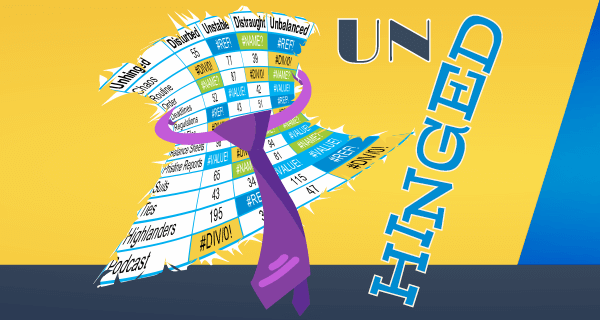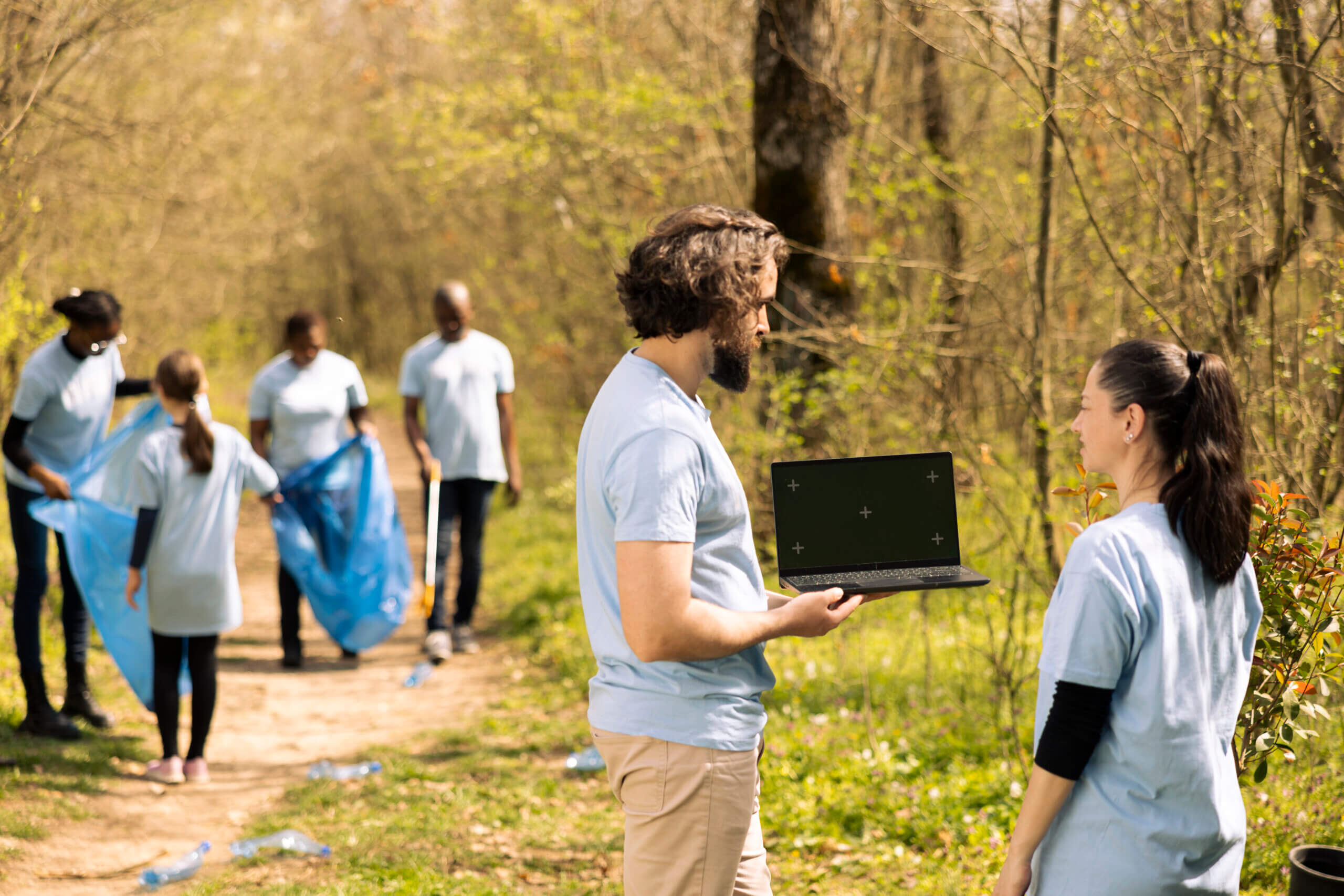Episode 8
Don’t miss out on other podcast episodes from Dean Dorton! Listen and subscribe:
Transcription
Justin Hubbard:
Hey guys, I’m very excited to have Brian Luftman on the show today. Brian is a passionate entrepreneur who started numerous ventures. Our conversation ranges from cross country running to the Chicago trading floor. Brian offers valuable insight into how to focus time, spend resources, and gauge whether you’re winning or losing.
Brian Luftman, welcome to the show.
Brian Luftman:
Hey Justin. Thanks.
Justin:
So you’re a busy dude. You’ve got American Farm Investors, you’ve got a hemp production going, you’ve got two whiskey brands you’re working on, some Airbnb properties, and you’re really active in angel investing.
Brian:
Correct.
Justin:
I’m excited about this conversation. I listen to a lot of podcasts and I saw that Tim Ferris had Hugh Jackman on. I’m thinking we’ve got to match that, so we pulled in David Goodnight. And then Dax Shepard had Bill Gates, and I’m thinking, clearly, we’ve got to get Brian Luftman.
Brian:
Yeah, Gates just did one company the whole time. I’ve started a lot more than him.
Justin:
Exactly. Your bio is much more interesting.
Walk us through a little bit about your background. It’s pretty interesting. You’re a Lexington native, you went to Chicago, and now you’re back in Lexington.
Brian:
Correct.
Justin:
So what drew you back home?
Brian:
Well, the Chicago weather was pretty brutal for about seven out of the 12 months of the year. So I always kind of felt this draw to get back down towards the South. But as I missed Kentucky, and I was loving Chicago, don’t get me wrong. There’s no better thing in the world than to live in a big city when you’re in your twenties. I mean, we had a blast, my wife and I got married up there, and it was a great place to live, but Kentucky, and Lexington particularly, evolved while I was gone. And the bourbon boom started while I was gone. People were starting to think of Kentucky as more of a cool place to be, rather than just a place where horses came from. So I just felt that draw. And I also had a concept of, I wanted to start a farmland investment company. And so you can’t do that in Illinois, or in Chicago, anyway. I’d much rather do it in a niche environment like Kentucky. So it all just kind of lined up to get to back to Lexington, which I love.
Justin:
Got it. So in Chicago, you were doing some commodities trading.
Brian:
That’s right.
Justin:
And then from there you actually started your own trading company.
Brian:
I did. Yeah, I worked for a small trading company. After a couple of years of trading for my boss, I realized I was decent at it and felt enough confidence that I could go off on my own and learn what I needed to do to start my own firm. So I did that at age 25. And it was a little scary at first, but if you feel like you can do something, do it, don’t be hesitant because it worked out very easily. And I ended up running a company that had probably … tt wasn’t big, maybe six or seven employees, three traders working for me at the same time. And we did pretty well and we closed it. Not because we went out of business, but because the market was starting to dry up and I wanted to move to Kentucky. So it was truly a success. And it was a fun time.
Justin:
Yeah, absolutely.
Brian:
And I was on the floor, which was a really cool. To be a floor trader back in the heyday was something that kids today can’t even aspire to do because it doesn’t really exist, but it was a really cool thing to do back in the day. And I really loved it. I mean, I wouldn’t trade those days for anything.
Justin:
Wow. Yeah. That is pretty cool. So you came back to Lexington, you started American Farm Investors, which you call AFI, right? So AFI has gone well, and now you’re into hemp, whiskey, Airbnb, all of this angel investing—what ties all that together?
Brian:
Well, the AFI, that’s the horse that I’m riding. I created that company to help the masses invest in farmland. But the common denominator, the common thread is that the bourbon things have come as an offshoot from AFI because we own a lot of land that produces corn for the whiskey business and wheat. So Maker’s Mark, Buffalo Trace, Jim Beam, Willett, all these brands use our corn, it’s all grown on our land. And so we’ve got this bourbon undertone going on, and the next thing you know, I’ve got a couple bourbon startup ideas that fall into my lap and I take them and run with it.
And the same thing happened with the hemp company. I had enough good reputation from the way I ran AFI that a Colorado company asked me if I would help them set up their supply chain for hemp in Kentucky, which I was glad to do because it was a good way to get into the hemp world without having to figure it out how to sell it on my own. AFI was the main glue, and then the off shoots come from it.
But really the only projects I want to be involved with are projects that excite me, projects that I think that if I take them on, I can take them to a higher level, and something that’s really cool to work on that the world’s never seen before. When I was in sports, I realized at an early age that you want to put effort in where you can get the most out of it. For instance, I was really into soccer and baseball, but I never was on the very best team. I was never elite. I was always a good player in both of those sports. And I get to high school and I’m on the junior varsity team and I’m trying to make the varsity team of soccer. And I go try out for track just to get in shape for that. Well, I’m winning all these races in track, but track is not nearly as fun as soccer. I mean, you’re just running, but I was great at it.
And so I dropped soccer and got into track and cross country. And yeah, I wish I would have been the best soccer player, but I wasn’t. But I was the best distance runner in the city of Lexington because I worked at that and it was just easier for me and my talent lined up with that better than it did with soccer. What I learned from that is, if you can catch a tailwind in something that you’re talented in, passionate about, or something that comes easy to you, you’re going to get better results out of that.
Justin:
I don’t want to beat this up, but I’m fascinated by cross country runners in a professional setting, because there’s just something about that grind.
Brian:
There’s something huge about that.
Justin:
I mean, you just, you know you can finish, you know how to run the mini races within the big rice.
Brian:
Were you a cross country runner?
Justin:
Yeah, I was.
Brian:
You were. So you know that feeling that when you are about two miles into a three mile race and everything in your body is saying, “You got to slow down, or you got to stop, or you should quit.” And you’re just like, heck no, I’m going to actually push harder. And then what do you know? You win the race.
Justin:
Well, and to me, there’s never a better feeling than that last hundred meters. And you’re just crossing that finish line and you’re completely spent. You know immediately, did you leave anything out there? Should you have starting kicking earlier? My kids are in cross country. I’m super excited that they’re taking it right now.
Brian:
That’s great. And it’s an individual sport. My dad said this at one time because my dad was a track runner and he was kind of pushing that very lightly when I was playing soccer. He was like, “Maybe you might want to get into track.” And I got slighted on a couple of teams when I thought I could make the best team and I didn’t make it. And my dad would always say, “The stopwatch doesn’t lie, Brian.” Your coach can have his objective view on whether or not you’re the best soccer player and you deserve to be on that team. However, the stopwatch doesn’t lie. In cross country and in track and in swimming, they’re quantifiable. There’s no debating. You’re better than the other kid. So no matter how hard you push, no one’s going to tell you that you weren’t the best. And I love that too. Maybe that individual sport type of thing, rather … so it was so quantifiable.
Justin:
That’s a great thing. The stopwatch doesn’t lie.
Brian:
Right.
Justin:
So what’s your stopwatch now?
Brian:
Financial results are pretty much a really easy way to tell if you’re doing well or not. And my goal in life is to have everything that I’m tied to be successful to the best of its ability. And to achieve that, you’ve got to have financial sustainability, if not above average return. So I think that’s the stopwatch now in my mind.
Justin:
That’s fascinating. Do you have certain hobbies or personal interests that feed your ongoing commercial activities?
Brian:
Sure. I mean, I listen to other podcasts. I love listening to brilliant people talk about the way they achieve success, and I don’t know if I’m anywhere near their level. And then fitness is something that I take seriously because I know when I work out some morning at 6:00 AM, I’m more productive that day and I’m happier. So I mean, having three kids, two dogs, a bunch of businesses—it’s really hard to make sure I do that two or three times a week. But when I do, I’m really happy I do.
I mean, this is so cliché. Like travel, fitness, reading—come on. Every entrepreneur says that, but it’s true. I really believe that travel is important too, because when I go back to Chicago and spend a weekend there and see what’s going on in Chicago, there’s more big city ideas, people are more aggressive, and you have to stand out in big cities in general. And I bring that mentality back to Lexington, and I get my edginess back a little bit.
Justin:
You look at your businesses, things have gone well, things that maybe have been a struggle. Are there certain philosophical things that you see across them all or things that you have intentionally tried to install so that they would be successful?
Brian:
Yeah. I think it’s providing something that people have never had access to before, and in a really cool way. I just find that marketing tactic to work. For instance, American Farm Investors kind of branded farm investing in a way. We’d make everybody feel really good about their investment. We give them videos, we send them pictures, we send them an ear of corn in a box like, “Hey, you grew this on your farm.” Stuff like that. And just making people feel really good about what they have spent their money on or invested their money in.
Same thing goes for my Never Say Die bourbon brand. The level of which that we’re trying to make that a premium brand, we’re producing whiskey here, shipping the barrels to England, around a story that was similar in the horse world, where a Kentucky horse changed the world in England. And we’re trying to change the bourbon world in England, similarly. We’re creating a British bourbon brand that’s going to launch next summer, and hopefully the people of Great Britain, and London in particular and Liverpool, fall in love with our brand as their own whiskey brand, cause England doesn’t have a whiskey brand. They’ve got scotch that they drink from Scotland. They’ve got Irish whiskey. There is not a British whiskey. And so we’re trying to create that for them. And we think it’ll be really cool. And so the same tone is just produce a really quality product for people and something they’re just not used to seeing.
And then with my hemp companies, we just grow hemp for Charlotte’s Web, which is a brand that is the number one CBD company in the world. And so I recognized in the founders of that, who actually came here and we’ve become friends, the same passion and the same concept. Let’s produce the very highest quality in this new market. That’s the way they tackle the CBD business. And I’m just happy to be a supplier for it and a partner with those guys. I guess that’s the underlying theme. Just do a great, great job in a cool market.
Justin:
Be noticed.
Brian:
Yeah. And I think that’s something I would tell young entrepreneurs is, if you do a fabulous job at whatever it is that you’re doing, you will get noticed.
Justin:
Let’s pivot a little bit and talk about angel investing.
Brian:
Sure.
Justin:
So what drew you to that world?
Brian:
I guess the ability to see other people doing what I was doing and to passively be able to invest in them, and because I think you can achieve great returns financially. And if you make 20 venture investments, you’re going to double or triple your money. I’m convinced of that. If you’re good at picking. And with David, and Chris, and Ben Self, and all the guys that help me run Bluegrass Angels, we collectively do a very good job of picking winners.
So I just loved the concept of what BGA had and have really helped many of us that run it, have really helped it evolve to where I feel like we have one of the best angel investment groups as far as doing due diligence in the whole region. And it’s fun to be a part of it. And it’s fun to make these investments and help other people fall in love with angel investing. So I guess just being able to achieve success without having to be the one completely running it. With everything else I do, I’ve got to be that engine. Instead, I can pour the gasoline in the engine. It’s different.
And I really like that because, I mean, that’s a common theme for a lot of entrepreneurs—you start off as an entrepreneur, you gain some success, and make enough money that you can actually start making some bets on your own where you’re willing to take some risks. I’m a risky guy. Obviously, I was a floor trader in Chicago for 10 years. I’m not scared of risk. So that’s another thing. I just, I’m not scared to make a big investment and have it fail because I know that if I make 10 of them, a couple of them are going to be rockstar and they’ll pay for all the rest.
Justin:
But where do you see a lot of startups or young entrepreneurs wasting time?
Brian:
I think a lot of young entrepreneurs spend a lot of time telling people about their idea and trying to convince people to invest in their idea. And I say idea because it’s a huge manifestation once you take your idea into a business. And until you’ve taken that step to actually begin commercializing it, or get that beta product, or get that MVP—minimum viable product—that I don’t let anymore listen to somebody’s idea. Everybody’s got an idea.
Justin:
Or it’s just a spreadsheet.
Brian:
Or worse. It’s just some vision that they have in their head, and they’ve convinced a bunch of people. And there are people that have got their friends and family or even investors to jump in on their idea so they can help build it into a business. I think that’s a complete waste of time. I think, when you’re a young entrepreneur, you should be the one trying to create your idea into something that’s investible. And that is like I said, a product that people are actually interested in, or maybe even get your first customer because that first customer is going to help you drive that idea into a real business.
They’re going to say, “Hey, this tool is really great that you built for me. Could you do this, this, and this?” Almost every successful company I’ve seen has already done that before they take on fundraising. So walking around, telling everybody about your idea is a waste of time. Make your idea happen into something and then tell people what you’ve created. And I think that’s a huge step that people need to take on.
Justin:
If all you have is an idea, you don’t have a stopwatch.
Brian:
Exactly. You’re just trying to make the team without practicing.
Justin:
Or you’re content to be on the bench.
Brian:
If I was going to go try to make the varsity soccer team, there’s two ways to do it. One, is go tell everybody I want to make the junior varsity team. The other is to sit in my backyard and practice soccer skills until I’m exhausted. And which one has a better chance of me making the team? No one needs to know I’m trying to make the team. I’ve got to do it myself.
Justin:
All right. If you could impart one word of wisdom to every entrepreneur across the land, what would that be?
Brian:
My first boss told me this when I was a trader in Chicago—he said, “Don’t confuse effort with results.” And I just love that. It’s such a profound statement. Don’t confuse effort with results because there were traders in Chicago that would come in at four in the morning and study their worksheets and know their prices and do all this stuff. And there’d be some other slob who comes in drunk from the bar. And what do you know? He’s a better trader than the other guy. And why is that? I don’t know. But what was undeniable was that stopwatch or the results. So don’t confuse effort with results.
You want to bet on proven winners. You want to bet on people that you have already achieved results in their own idea. Not the work that they’re doing on it. So that’s what I would tell people. Don’t confuse effort with results.
Justin:
That’s a great word. Awesome. Thanks for being on.
Brian:
I appreciate it.
Justin:
Congratulations on everything that’s going well.
Brian:
And don’t confuse effort with results! I’m still working on a lot of this stuff and I hope it comes to fruition.
Justin:
I think you’re doing all right.
Brian:
Thanks.
Justin:
We’ll do it again.
Brian:
I appreciate you having me on.
Your Host
With Guest








